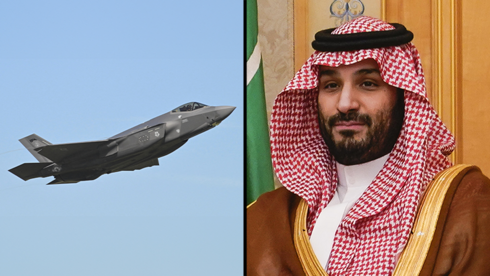Almost Heaven
Well-known
Israel does not object to Saudi Arabia's bid to buy F-35 jets from the United States, yet wishes that President Donald Trump condition the sale on the normalization of ties between Riyadh and Jerusalem, Axios reported on Saturday.
Should the deal go through, the reasoning goes, Israel would lose its all-important qualitative military edge (QME), a long-standing security doctrine guaranteeing the Jewish state's survival in a largely hostile region.
The report comes two days before Trump's White House meeting with Saudi Crown Prince Mohammed bin Salman, with the two leaders expected to ink economic and defense deals.
Last week the New York Times reported that the Pentagon raised concerns over the potential deal, warning that China could acquire the aircraft's technology if the sale proceeds.

 www.i24news.tv
www.i24news.tv
Should the deal go through, the reasoning goes, Israel would lose its all-important qualitative military edge (QME), a long-standing security doctrine guaranteeing the Jewish state's survival in a largely hostile region.
The report comes two days before Trump's White House meeting with Saudi Crown Prince Mohammed bin Salman, with the two leaders expected to ink economic and defense deals.
Last week the New York Times reported that the Pentagon raised concerns over the potential deal, warning that China could acquire the aircraft's technology if the sale proceeds.

Report: Faced with losing QME, Israel wants Trump to condition sale of F-35s to Saudi on normalization - i24NEWS
Should the deal go through Israel would lose its all-important qualitative military edge (QME), a long-standing security doctrine guaranteeing the Jewish state's survival in a largely hostile region


